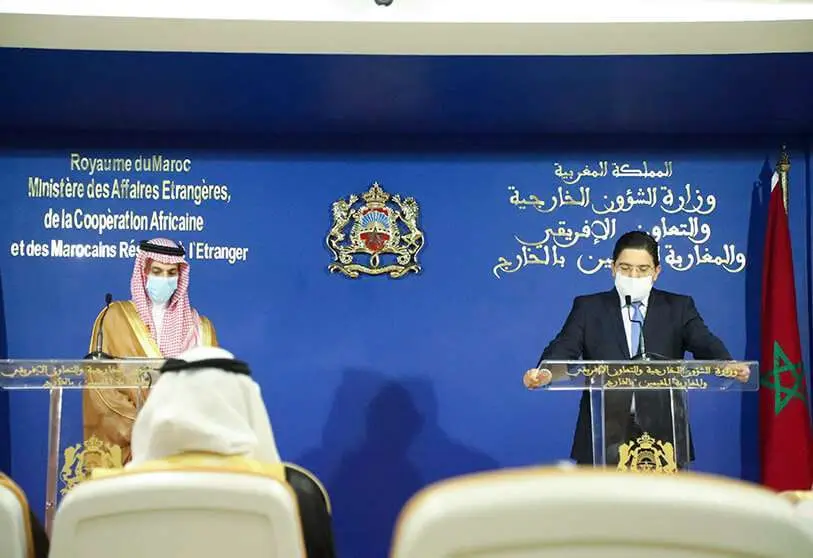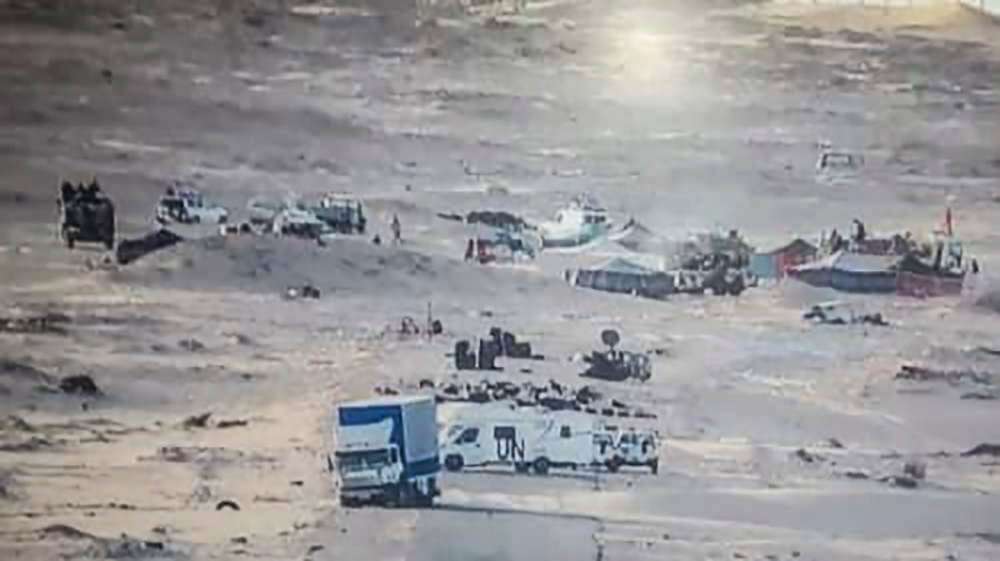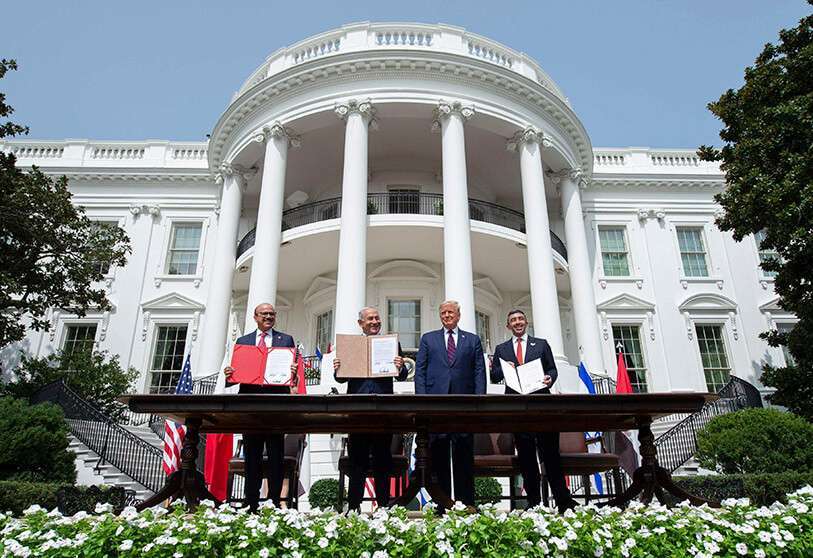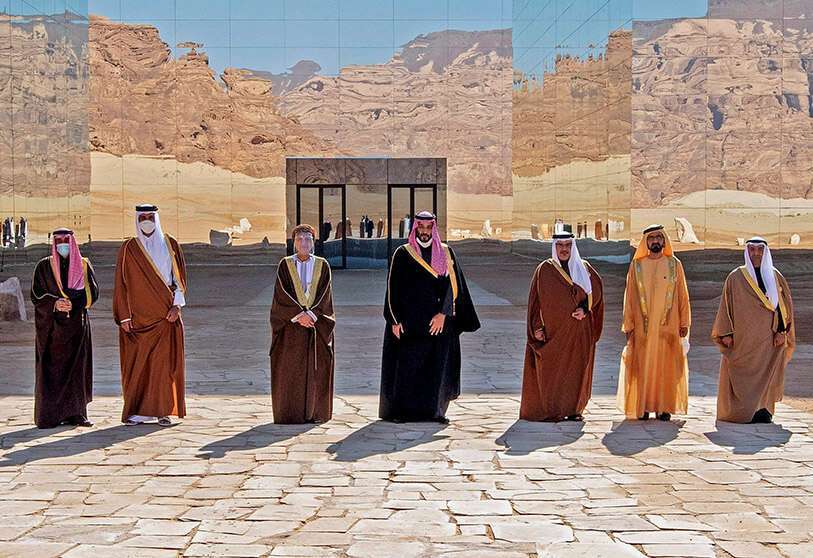Arabia Saudí afianza su respaldo a Marruecos en el Sáhara Occidental

Moroccan Foreign Minister Nasser Bourita held a virtual diplomatic meeting on Tuesday with his Saudi counterpart, Prince Faisal bin Farhan al-Saud, according to the Moroccan Foreign Ministry. At the meeting, the foreign policy heads staged the resumption of bilateral relations between the Kingdom of Morocco and Saudi Arabia, which, according to analysts, had been at an impasse.
The Saudi prince showed the full and complete support of the House of Saud on the Western Sahara dispute to Minister Bourita. Faisal bin Farhan al-Saud affirmed that 'Saudi Arabia confirms its unwavering support for Morocco's territorial unity', in an explicit sign of recognition of Moroccan sovereignty over the region. The prince also underlined the commitment to defend the sovereignty and territorial unity of Arab states and to prevent foreign interference.

This last point was echoed by the Moroccan representative, who, in turn, took up Prince Faisal bin Farhan al-Saud's gauntlet and responded with a battery of praise for the Saudi Kingdom's actions in Yemen. Bourita expressed his solidarity, on behalf of the Alawi kingdom, and his support for "the brotherly Kingdom of Saudi Arabia in defending its stability, territorial integrity, security and protection of its citizens and residents and for its initiative in resolving the crisis in Yemen".
Saudi Arabia's explicit backing reveals the Kingdom of Morocco's great foreign policy prowess. Rabat, through the figure of Bourita himself, has managed to mobilise a large majority of African and Eastern states in its favour over the regional dispute in Western Sahara. The latest was Saudi Arabia, but countries such as Senegal, the Emirates, Qatar and Jordan did so before.

Beyond the Sahara, the ministers shared their views on the situation of the Israeli-Palestinian conflict in the wake of the recent attacks in Jerusalem. Both converged in showing their support "for the Palestinian people in defence of their just cause and their legitimate rights", and stressed the need "not to compromise the religious specificity of the city of Jerusalem". They also shared their joint objective of establishing a two-state solution as the only way to overcome the impasse in the conflict.
On this issue, both the Kingdom of Morocco and the Kingdom of Saudi Arabia have strengthened their ties with Israel in the framework of the Abraham Accords. Led by the Trump Administration and signed in November last year, the pact forced Saudi Arabia in particular to renew its position and its bilateral relations with Israel and to reconsider its action on the conflict. The House of Saud noted that normalisation of its ties with Israel would be of 'enormous benefit' to the Middle East and North Africa, although any progress would be contingent on progress in the peace process.

International observers have perceived a rift in recent months between Morocco and Saudi Arabia. However, the current regional and global scenario is conducive to a rapprochement. Although they have many differences, both are aware that they need each other to strengthen their respective positions on the map. Firstly, because of Iranian influence; secondly, because of the Polisario Front's connections.
Tehran is a major player in Western Sahara, as, together with Algeria and Hezbollah, it has strengthened the Polisario Front's position and means. For this reason, the Kingdom of Morocco broke off diplomatic relations with Iran in 2018. The head of Moroccan diplomacy, Nasser Bourita, explained that this decision was motivated by the alliance between the Iranian regime, the Lebanese terrorist group and the Polisario against Morocco signed in 2016.
Riyadh welcomed this rupture and backed Rabat, even though the latter took a neutral position on the Gulf crisis in 2017 when Saudi Arabia, the United Arab Emirates, Bahrain and Egypt began cutting ties with Qatar. Morocco had previously been one of the first states to support the Saudi intervention against the Houthi rebels in Yemen. Rabat's support materialised with the dispatch of F-16 fighter jets.
According to observers, relations between Morocco and Saudi Arabia have regained their usual momentum following the initialling of the Al-Ula declaration on 5 January. This declaration put an end to the crisis with Qatar. In addition, following Tuesday's foreign policy talks between the two sides, the two delegations began preparations for the next joint meeting.








